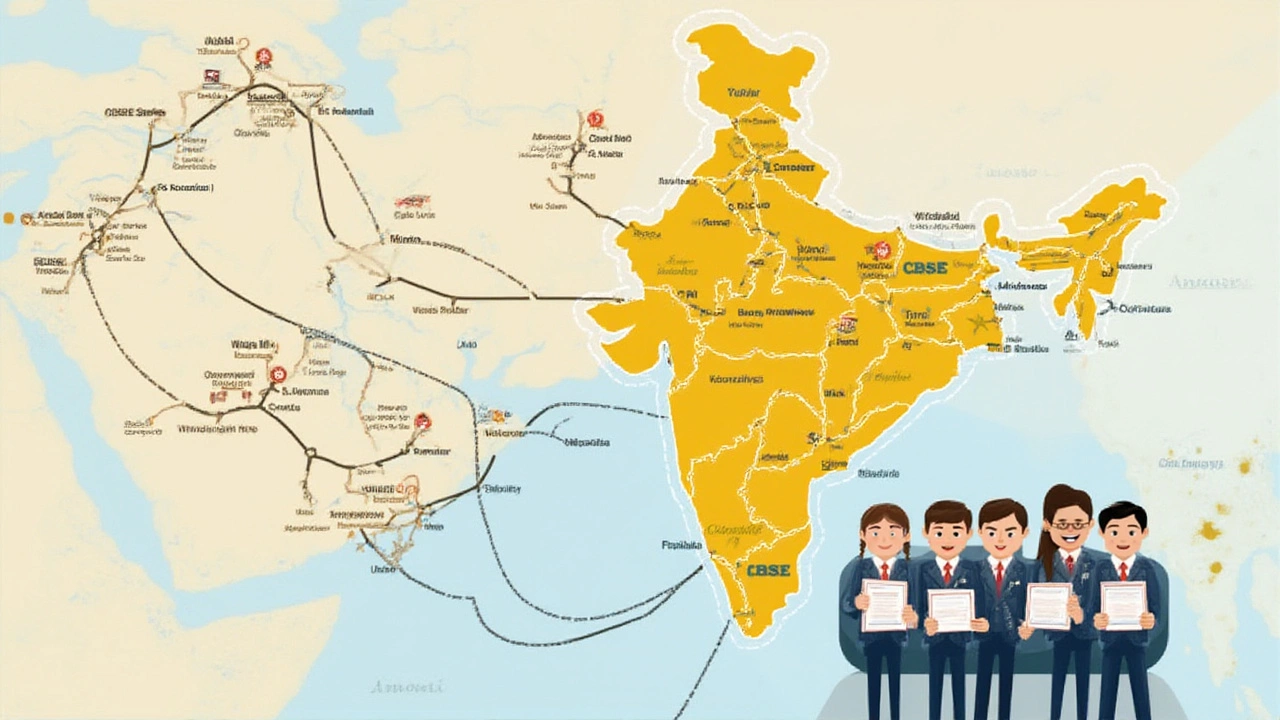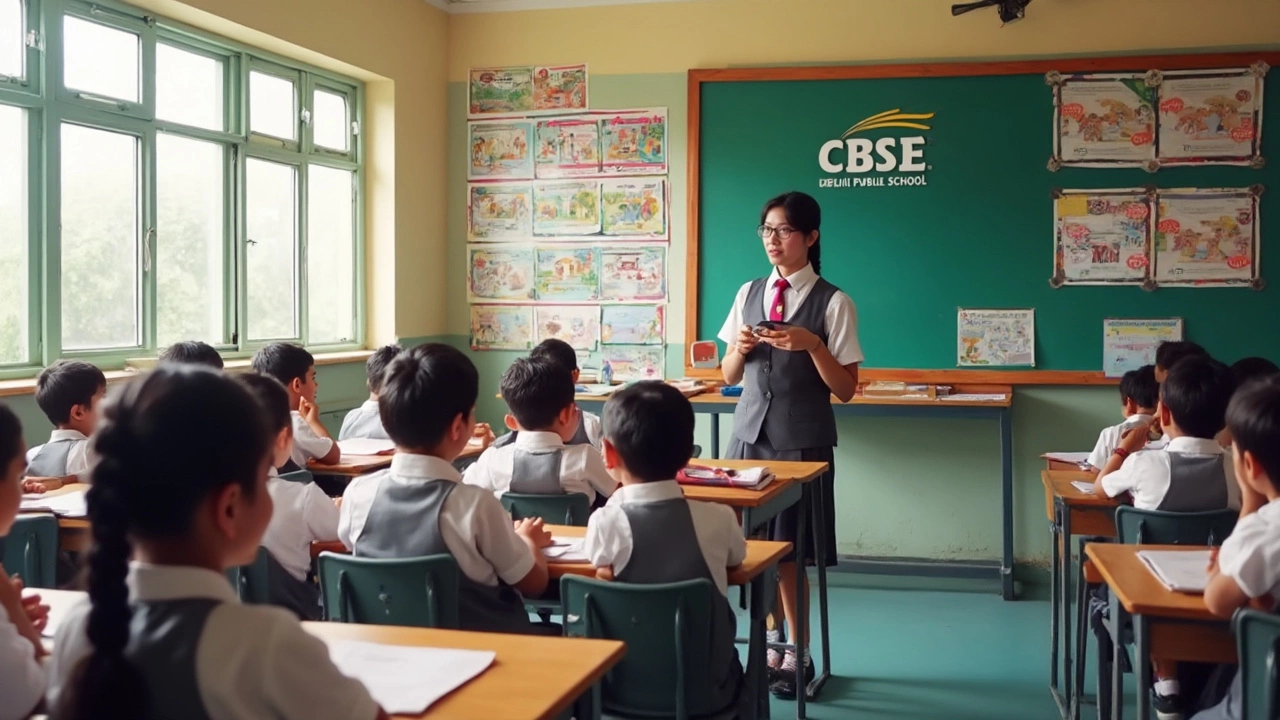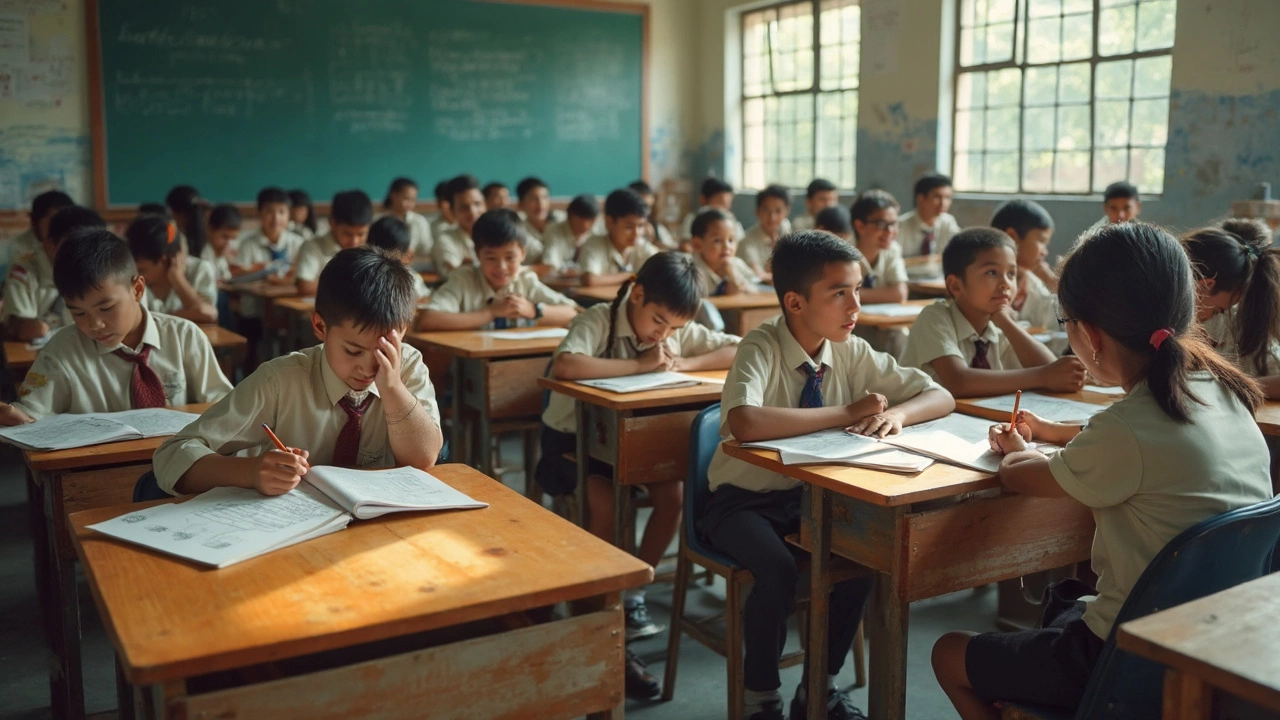Think CBSE is just a club for Delhi schools? You’re not alone. Ask around on any campus or parent WhatsApp group, and you’ll hear people call CBSE “the Delhi board.” But why does this label stick so hard, and is there even a grain of truth to it? The answer is tangled in old history, education policy quirks, and a fair dose of myth-making. If you’ve ever wondered what exactly CBSE is—and what it definitely isn’t—you’re in the right place.
Where CBSE Began: Delhi Roots, National Reach
There’s no denying CBSE’s roots are tightly knotted into Delhi. Originally, the Central Board of Secondary Education (CBSE) traces all the way back to 1929 with the “Board of High School and Intermediate Education, Rajputana.” Then came independence, reshuffles, and renaming—eventually, by 1952, CBSE was officially born. During these first few decades, the board’s headquarters set up shop in Delhi.
But why did Delhi get so much screen time? It’s simple: when the Indian government designed CBSE, it needed a central place for managing schools attached to government departments—think army, air force, railway, and central government staff. Delhi was the bureaucratic heart of India, so of course CBSE’s offices landed there. That alone doesn’t make every CBSE school a Delhi school, though.
Here’s something most folks don’t realize: right from its early years, CBSE’s job was to supervise not only Delhi schools, but also all those government-run or affiliated institutions scattered across India. Army schools in Sikkim, Kendriya Vidyalayas in Kerala, Jawahar Navodaya Vidyalayas in Nagaland…they’ve all fallen under the CBSE umbrella, thanks to parents being transferred all over the country. By the late 1980s, CBSE was running exams and managing affiliations in every state. Today, more than 28,000 schools in India are CBSE affiliated. Now, compare that to the handful of Delhi government and private schools—the numbers blow the “Delhi board” rumor out of the water.
Interestingly, even the neighboring states around Delhi—like Haryana, Uttar Pradesh, and Rajasthan—sometimes dominated CBSE toppers list, showing how widespread CBSE’s reach really is. The “Delhi board” tag likely stuck because so many famous schools around Lutyens’ Delhi carried the CBSE flag. Yet, step into classrooms from Agartala to Andaman, and you’ll bump into a CBSE timetable, not just in Delhi.
What Makes CBSE Unique? Curriculum, Exams, and Flexibility
Now, let’s get into what actually sets CBSE apart from “state boards” (like Maharashtra SSC or West Bengal Board). At its core, CBSE is a national-level education board, meaning the syllabus, exams, and textbooks stay the same for every student, no matter if they’re learning in Delhi, Chennai, Shillong, or Dubai (yes, CBSE even travels abroad—more on that in a bit!).
The board’s syllabus is developed by the National Council of Educational Research and Training (NCERT), aiming for consistency and balance across all communities. That means a standard textbook on Science or Math in a CBSE Patna school looks exactly like one in Pune. This nation-wide uniformity is a godsend for families that move around a lot—think army kids and those with parents in transferable jobs. No messy transfer of credits or relearning different curriculums. Just one smooth transition.
CBSE’s approach to exams also stands out. Until recently, the board’s focus was much more on objective knowledge and conceptual clarity than rote memorization, a sticking point in some older state syllabi. The board was early to introduce reforms like Continuous and Comprehensive Evaluation (CCE), multiple board exam options, and internal assessments. And during the COVID-19 pandemic, CBSE led the charge on re-tooling the exam system, shifting to online learning and digital question banks, years before some state boards managed.
Another fun fact: major national-level entrance exams for medicine and engineering—including NEET and JEE Main—use the NCERT/CBSE syllabus as their base. No wonder ambitious students from every state prefer CBSE to keep their options open. So, calling CBSE “just a Delhi thing” ignores the way it quietly props up dreams from all over India.
What about language options? While Delhi-centric boards might limit choices, CBSE lets students pick from a menu of regional and foreign languages, including Assamese, Arabic, French, Telugu, even Tibetan. This flexibility is rare among regional education boards. And for schools abroad catering to Indian expat families, CBSE is almost always the go-to, with hundreds of international affiliates in Oman, Singapore, Saudi Arabia, and plenty more.

Why Does the ‘Delhi Board’ Myth Stick Around?
Why do people keep calling CBSE the “Delhi board” even though the facts say otherwise? Part of it boils down to simple perception—and maybe even a splash of old-school snobbery. Delhi has always had a cluster of elite public schools, from DPS R.K. Puram to Modern School Barakhamba Road. Many of them are CBSE affiliated, so parents and media tend to connect the two in their minds, especially when Delhi students grab top marks or win the academic Olympiad circuit.
On top of that, the CBSE’s headquarters, official paperwork, and main exam administration offices all still operate out of Delhi. When exam news breaks, it’s usually a Delhi number at the top of the letterhead. It’s easy for people in far-off states to assume it’s a Delhi body running the show.
But here’s the punchline: CBSE is very much a pan-India (and even international) board. According to a 2023 government report, about 90% of CBSE-affiliated schools are outside Delhi. Even within Delhi, you’ll find plenty of schools that actually follow the Delhi state board—sometimes called the Delhi School Education Board (DSEB)—instead of CBSE. Yes, that’s a real thing.
Another aspect? Media coverage. When CBSE results grab headlines, news wires often focus on Delhi toppers, analysts, or coaching centers. This gives off the impression that CBSE is a Delhi-only phenomenon, when in reality, exam scripts are being checked from every major city, and regional toppers pop up from Jharkhand to Kerala every year.
And then there’s history. For decades, lots of Delhi schools chose CBSE to keep things convenient, secure prestigious status, or cater to bureaucrats’ kids. Over time, that image stuck. But the numbers—and the real classrooms—tell a different story.
Choosing CBSE: Should You Care Where the Board Comes From?
So, why does this “Delhi board” notion even matter? For most parents and students, the choice between CBSE and other boards can feel huge—will it affect college admissions, job chances, or even moving cities? Here’s what’s actually important.
First off, CBSE’s main superpower is its mobility. If your family moves often (think transferable jobs), CBSE makes it simple to slot into a new school without missing a beat. All the homework, syllabus, marking schemes—identical, whether you’re in Indore or Indiranagar. That comfort alone sways many families toward CBSE.
Next, if your child aims for national entrance exams like NEET, JEE, or even many government job tests, the CBSE/NCERT syllabus rules the roost. Why make things harder with an off-syllabus board?
What about “Delhi advantages”—is there any truth to the idea that CBSE kids from Delhi schools get special treatment? Not at all. While networking or location might provide perks for some, board examiners handle papers from all over with strict procedures. The results and paperwork are centralized, so there’s zero bias toward Delhi-specific schools.
And for the doubters who think only Delhi students shine in CBSE, a quick look at annual toppers will prove otherwise. In fact, kids from states like Telangana, Odisha, and Punjab often walk away with the highest scores. There’s no Delhi pipeline to success here—just nationwide competition.
If you’re picking between boards, focus on the bigger questions: Does the syllabus match your child’s learning style? Are you likely to switch cities? Does your target college care about the board, or just the marks? For engineering or medicine, CBSE is a smart way to align your studies with national standards.
And a quick tip: If your family plans to move abroad, or wants education recognized internationally, CBSE schools are everywhere—from Dubai to Malaysia to Tokyo. The “Delhi board” is, quite literally, a global passport for education.
So, the next time you hear someone drop the “Delhi board” label, call it what it is—a lingering remnant of history, not a reflection of today’s reality. CBSE belongs to the whole country—and a big chunk of the world as well.



